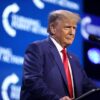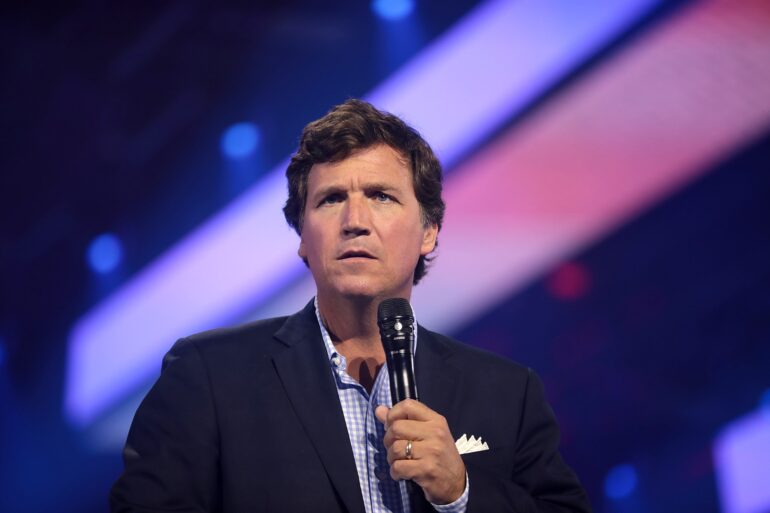Tucker Carlson, the former Fox News host, has now reportedly raised concerns regarding President Donald Trump’s recent agreements to develop hotels and resorts across the Middle East. During a segment on The Tucker Carlson Show, he suggested that these business dealings could be perceived as corrupt.
The Trump Organization has announced plans to build several high-profile projects, including a Trump International Hotel and Tower in Dubai, a golf resort in Doha in collaboration with Qatar’s sovereign wealth fund, and a hotel under construction in Muscat, Oman.
These developments come on the heels of Trump’s recent trip to Saudi Arabia, Qatar, and the United Arab Emirates, where he engaged in various diplomatic discussions.
In a conversation with Shawn Ryan, a podcast host and former Navy SEAL, Carlson expressed discomfort over the timing and nature of these deals.
Ryan noted the potential overlap between Trump’s diplomatic activities and the announcement of new hotel projects, questioning whether these developments were influenced by negotiations occurring during Trump’s visit.
Carlson responded to Ryan’s concerns by affirming that he had not financially benefited from any dealings in the Middle East.
“I’m just a visitor and a traveler and watcher,” he stated, distancing himself from any insider knowledge of the negotiations.
Nevertheless, he acknowledged that the situation “seems like corruption,” highlighting the troubling implications of a former president engaging in business ventures in regions where he once held political power.
The conversation underscores a broader unease among some conservatives regarding Trump’s business practices, particularly as they intersect with his political legacy.
Carlson’s remarks reflect some discontent about Trump from within his own ideological camp, as some supporters grapple with the ethics of his financial dealings post-presidency.
Following the segment, reactions varied across the political spectrum. Critics of Trump seized on Carlson’s comments to further their claims of impropriety, while supporters argued that such business ventures are a natural extension of Trump’s entrepreneurial spirit.
The divergence in perspectives illustrates the complicated relationship between Trump’s business interests and his political identity.
As discussions surrounding Trump’s deals unfold, they may influence public perception of his potential candidacy in future elections.
The ethical implications of his business engagements, particularly in foreign markets, remain a contentious topic that could shape the landscape of American politics in the years to come.
Carlson’s reflections on the matter serve as a reminder of the complexities involved when political leaders transition into the private sector, raising questions about accountability and the potential for conflicts of interest in a rapidly changing global environment.
[READ MORE: Trump Urges New Pope to Visit White House As Soon as Possible]





